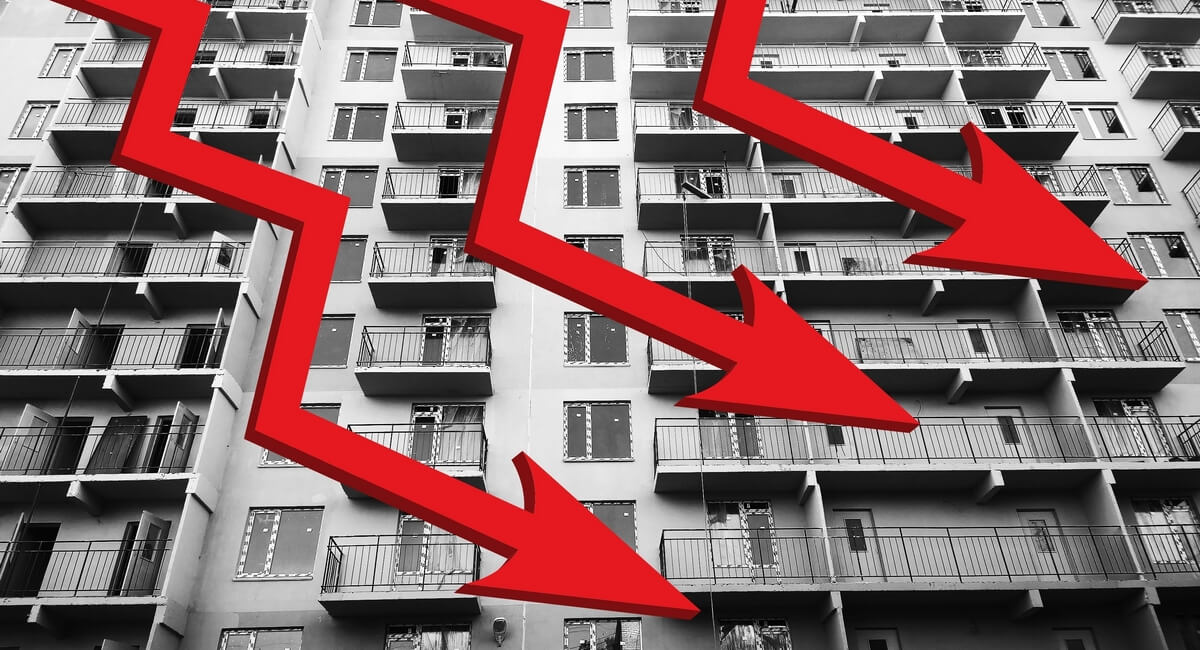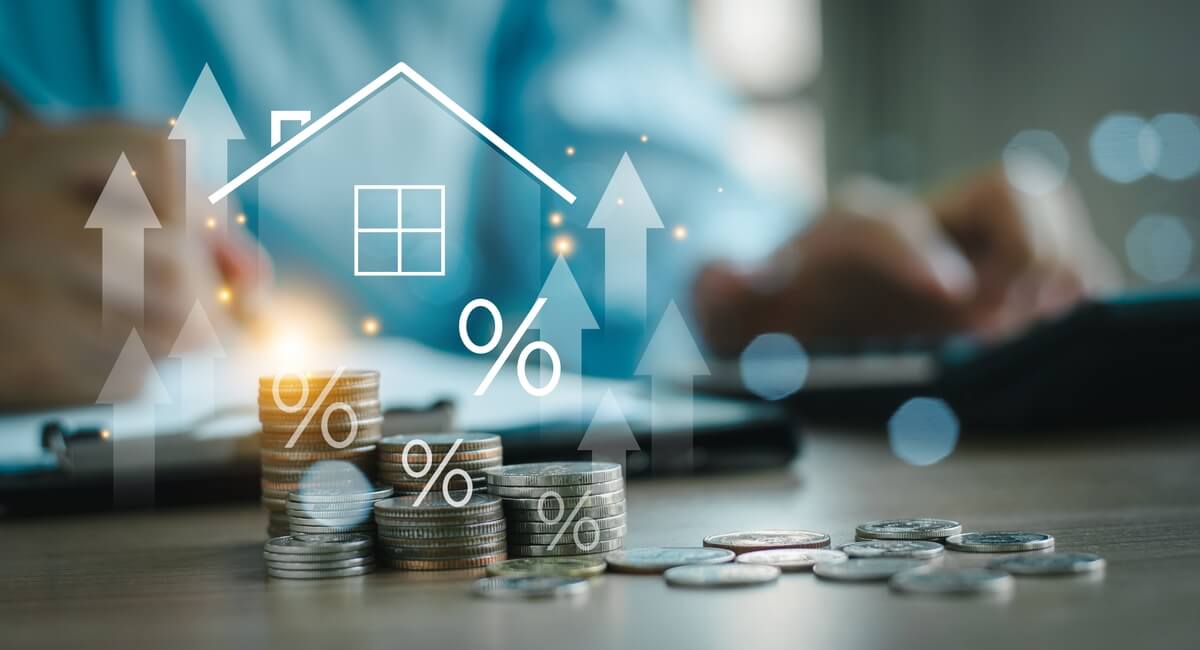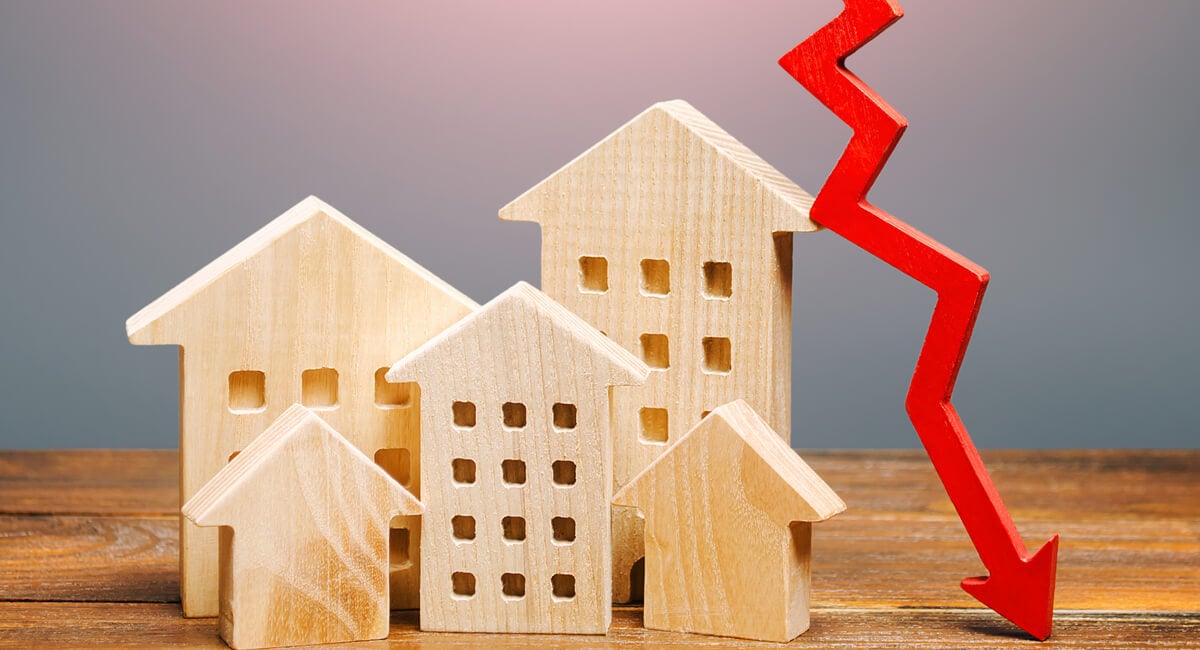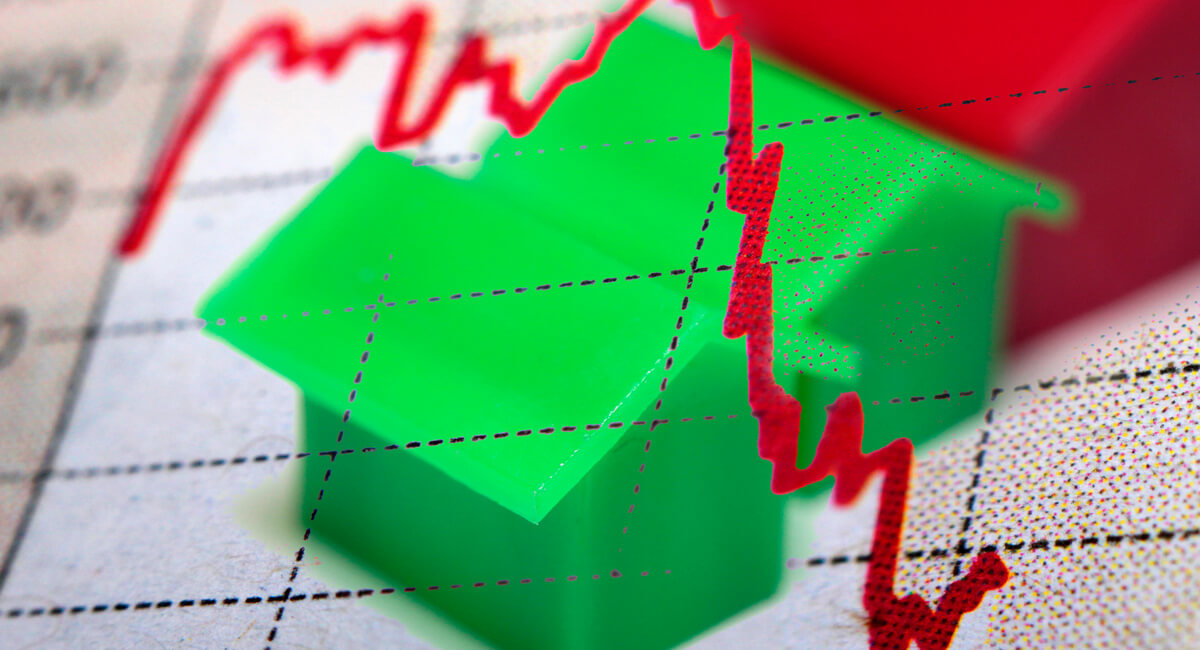Real estate is one of the most stable long-term investments. Housing is a basic necessity, and someone will always be in search of a home. Despite periods of economic decline, real estate has continued to increase in value in the long run.
However, economic fluctuations can cause short-term shifts in home prices and may influence supply and demand in the real estate market. During a recession, you’re likely to see changes in the market that persist until the economy recovers. Buying or selling a home during this time can feel risky.
Here’s everything you need to know about navigating the real estate market during an economic downturn:

The Effects of a Recession on the Real Estate Market
The real estate market cycles through periods of growth and periods of decline. These fluctuations are a natural result of changing economic circumstances.
Fewer buyers enter the market during a recession due to economic uncertainty, job loss, or other financial hardships. Because there’s less competition, sellers lose their advantage in the market. Homes sell for lower prices, and buyers have more negotiating power.
The market may see a reduced demand for rentals during an economic downturn, too. Young adults move back in with their parents, individuals move in with roommates instead of living alone, and families downsize to smaller rental units. As a result, rental rates tend to remain stagnant or decline.

Buying a Home During an Economic Downturn
A recession can be a great opportunity to buy a home if you’re sure of your financial stability. Because you’re competing with fewer buyers, you can negotiate a lower sale price.
The Federal Reserve often cuts interest rates to promote economic growth during a recession as well. Securing a low rate could reduce your monthly mortgage payment and save you thousands of dollars over the years.
Although there are long-term benefits of purchasing a home during an economic downturn, you need to consider the downsides as well. Due to increased concerns about foreclosure, lenders may set stricter requirements for borrowers. For example, you may need to offer a larger down payment to ensure you don’t go underwater on your mortgage.
The number of homes on the market can decline in a recession, too. The market isn’t favorable for sellers, so many people choose to wait to list their homes until conditions improve. You’re not competing with as many buyers, but you also don’t have as many options.
Keep in mind, too, that an economic downturn is a period of uncertainty. You might be able to comfortably afford a home now, but your circumstances could change overnight. If there’s any potential that you’ll lose your job during a recession, buying a house is extremely risky. Be sure you’re financially protected before entering the real estate market. Save a large emergency fund, and make sure you have extra room in your budget for unexpected repairs or other expenses.

Selling a Home During an Economic Downturn
Selling your house during an economic downturn can be a challenging experience. With fewer buyers in the market, you may have to reduce your asking price or be willing to offer more contingencies.
Be strategic about when you put your home on the market. If you’re not in a rush to sell your home, wait until you see the first signs of increased buyer activity.
Strong marketing can give your house a competitive edge in a buyer’s market. Staging your home gives prospective buyers a good first impression. Improving your house’s curb appeal helps, too. Take high-quality photos of the property, and film a virtual tour so buyers can easily see what your home has to offer. Keep your schedule as flexible as possible to allow your agent to schedule showings on short notice.
Working with a qualified real estate agent is more important than ever when selling your home in a recession. Your agent should have a strong understanding of the market in your area and should be experienced selling homes in this neighborhood. Good negotiation skills are essential for agents working during an economic downturn.
If you plan to buy a new home at the same time as you sell your current property, remember that you’ll also reap the benefits of purchasing a house during a recession. You may have to sell your current home for less, but you’ll be purchasing your new home for less as well. The advantages of buying in a recession can counteract some of the downsides of selling.

Buying Investment Properties
Commercial real estate usually suffers in a recession due to businesses closing or downsizing. However, residential real estate can be a good investment opportunity during an economic downturn.
Investors tend to be especially successful purchasing duplexes and multifamily homes in a recession. You could live in one unit and rent out the others, using the rental income to cover your mortgage payments. This will reduce your cost of living significantly, which is hugely beneficial during times of economic hardship.
You might see an increase in foreclosures and fixer-uppers on the market during a recession, too. These properties are an excellent opportunity for flipping. Purchase a distressed home when real estate prices decline, make improvements to the property, and sell it for a profit once the market recovers.
If you currently own rental units, you should make sure you’re financially protected if your tenants fall on hard times. Have enough cash on hand that you can make your mortgage payments even if the tenants fail to make their rent.

Predicting Real Estate Trends During Economic Uncertainty
Patterns of growth and decline are a normal feature of the economy. Although you can’t predict exactly when the market will recover, you can analyze past trends to get a better understanding of what will happen next.
If you’re looking to buy or sell a specific type of property, look at how similar homes performed in your area during past recessions. This can give you some valuable insight into what to expect in today’s market.
You should also stay informed on the current state of the economy overall. Keep an eye on Federal Reserve rate changes as this can have a significant impact on the real estate market. Changes in unemployment rates can indicate whether the economy is declining or improving, too. Look at predictions from credible sources to determine the best time to buy or sell your home.
Navigating the real estate market during an economic downturn can be a confusing and stressful experience. It can be a great time to buy a home if you have the means, but many people aren’t in the position to buy when times are so uncertain. If you plan to sell your home, be willing to make some concessions. As always, you should work with a trusted real estate agent who understands the market in your area. Your agent will guide you through the process and help you decide the best path forward in difficult conditions.

